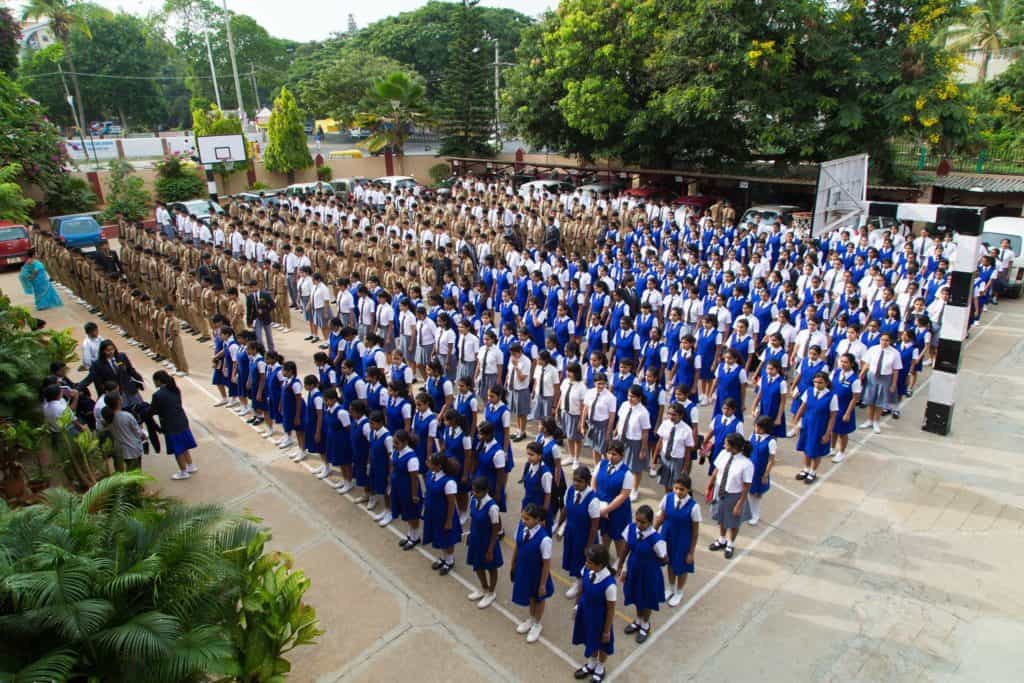Increased vigilance as COVID cases rise
On Thursday, 142 COVID cases were reported in Bengaluru Urban out of 154 in the state, with zero deaths. The day’s TPR (Test Positivity Rate) was 1.49%, while the weekly TPR touched 1.16%. The TPR in Bengaluru has been increasing slightly since April 9th.
Cases of mucormycosis or black fungus were back in at least one private hospital, Manipal Hospitals in Hebbal. This is despite the absence of risk factors such as sharing of oxygen cylinders or unhygienic treatment facilities, which were suggested as the possible causes of black fungus in the second COVID wave.
Chief Minister Basavaraj Bommai on Wednesday told media persons that the COVID situation in the State was under control. However, staff crunch is likely to be a drawback in the State’s preparations, as the services of 6,463 doctors and other staff outsourced by the health department during the first wave had been discontinued.
Bommai said hospitalised patients would be tested, and positive samples sent for genome sequencing. Two percent of international passengers would be randomly tested, and passengers from Australia, Indonesia, New Zealand and South Korea would be tele tracked. Medical oxygen capacity would be enhanced to 1,100 metric tonnes, he added.
Source: The Hindu, Deccan Herald, Indian Express
Campaigns to vaccinate children
With the Drugs Controller General of India approving vaccines for children aged 5 to 12 years, the State health department plans to hold special vaccination campaigns in schools during the summer vacation. Guidelines on vaccinating children in this age group are expected within a day or two.
The vaccine coverage among children aged 12 to 18 years is still low. CM Bommai said the government would intensify drives for those between 15 to 18 years, and for senior citizens.
Source: The New Indian Express, Indian Express
Read More: Fastest-finger-first Vs digital handicap – Part 1
Controversy over Bible teaching in school
Controversy erupted over Clarence High School asking the parents of Class 11 students to give an undertaking that they had no objection to the Bible being taught. The Hindu Janajagruti Samiti had accused the school of encouraging conversion and submitted a memorandum to B C Nagesh, Minister for Primary and Secondary Education.
The government has issued a notice to the school, seeking its explanation. Nagesh said that the school has violated the Karnataka Education Act, and action would be taken after receiving their response. Education department has direct all its Block Education Officers to monitor schools for religious teachings and to issue notices.
Clarence High School denied forcing students to learn or carry the Bible, and said it teaches only moral values drawn from Biblical stories. Dr Jerry George Mathews, Clarence High School Principal, said they could teach values from Bhagavad Gita and Quran too, and would consider dropping moral science classes if the government asks them to.

Meanwhile, the Archdiocese of Bangalore termed the allegations false and misleading. Dr Peter Machado, President, Karnataka Region Catholic Bishops’ Council, said that a minority Christian institution is within its rights to conduct religious classes for Christians outside the school hours. He asked the government to inquire into the number of students who studied at Christian schools and converted to Christianity, in the last 100 years.
Source: The Times of India, The New Indian Express, Indian Express, Deccan Herald
Composting machines set up in Koramangala
BBMP has set up wet-waste composting machines at its Kasa-Rasa unit in Koramangala on pilot basis. The machines were installed by Regenate Pvt Ltd using its CSR (corporate social responsibility) fund. The machines can process 500 kg of waste per day and convert it into manure in 15 to 18 days. More machines would be introduced if the pilot is successful.
BBMP Chief Commissioner Gaurav Gupta said that more decentralised processing units would reduce the waste management problem. Currently, BBMP spends close to Rs 55 crore a month towards door-collection and transporting of waste to distant processing plants or landfills.
Meanwhile, garbage burning has become widespread as the BBMP fails to impose the penalties specified in the Solid Waste Management bylaws. As per the bylaws, the fine for dumping, burning or burying garbage illegally is Rs 10,000 for individuals, and Rs 25,000 for commercial bulk waste generators.
Source: Deccan Herald
Read more: Bettahalasur village, north of Bengaluru, no longer has a garbage crisis. Here’s how
Metro’s tunnel boring machine sets record
Bengaluru Metro’s tunnel boring machine (TBM) Urja set a new record of completing 27 m of tunnelling work on Monday, between Cantonment and Pottery Town stations. Urja, deployed by Larsen & Toubro, has drilled 855 m in over a year. Officials said that it tunnelled under the most difficult geological conditions and below the oldest settlements.
Source: Indian Express
Peacock sightings
A number of peacocks have been sighted in densely-populated areas such as Basavanagudi and Jayanagar, while earlier they could be seen only in the outskirts. Many believe this is a result of the city’s improved conservation efforts.
S S Ravishankar, Deputy Conservator of Forests, Bengaluru Urban, said the department will start a drive to educate the public about the birds.
Source: Deccan Herald
Call BWSSB
The BWSSB (Bangalore Water Supply and Sewerage Board) will hold a phone-in programme on Saturday between 9 am and 10.30 am, for consumers to discuss grievances on water billing, manholes, improper water supply and sanitation facilities. Citizens can join the programme by calling 080-22945119.
Source: The Times of India
[Compiled by Revathi Siva Kumar]